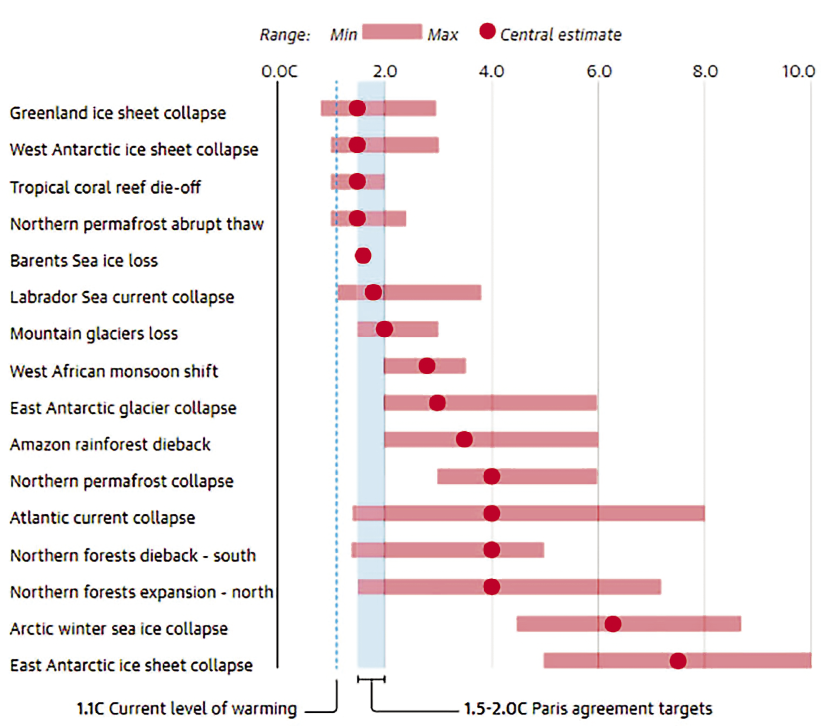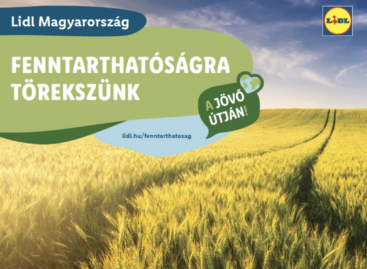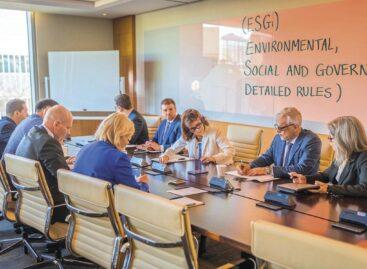Ecologist Mátyás Hunyadi at the Chain Bridge Club – Sustainable retreat instead of sustainable development?
At the January club meeting human ecologist Mátyás Hunyadi was the speaker, and the topic was sustainability.

By 2019 the level of CO2 concentration in the atmosphere reached 421 parts per million (ppm); back around 1900 and the centuries before that this number had been between 260 and 280. There is an energy imbalance on planet Earth and irreversible changes have started because of the 1.5ºC temperature increase. The steps we are taking today are 15-20 years late, as in 5 from the planet’s 15 biological and ecological turning points we are approaching the so-called tipping point.

Let’s face the possible scenarios
At the COP27 Climate Change Conference of the United Nations in Sharm El-Sheikh, the participants drafted a scenario until 2100, which – if the Paris climate goals are reached – will keep the temperature rise at plus 1.5ºC from the 1900 level. What happens if this attempt isn’t successful? For this situation there are four scenarios, with the next stage at 1.5-1.8ºC, than between 2 and 3ºC, 3 and 4ºC, and finally around 5ºC. The last one would practically mean the human civilisation is on the brink of disappearing. If the temperature rises by 3-4ºC, island type civilisations will remain, and it is difficult to tell how the social and economic systems will continue functioning. 2-3ºC higher temperature means that the most vulnerable countries and companies will be facing unmanageable challenges, as there are no plans for coping with these. Notre Dame University has compiled the list of the world’s most vulnerable/most resistant countries, and Hungary is in the 50th position on this – in 2019 we were 34th.
1.5ºC and its consequences
In 2022 the global GDP was approximately USD 100,000bn, 60% of which was generated by the EU, USA, Japan and the OECD countries. In these countries the middle class constitutes a massive group of consumers, which consists of 700-800 million individuals. If we add the more well-off consumers of China and some developing countries, we get 800-900 million people – only 10% of the world’s population. Human, industrial and social systems emitted 40,000 billion tonnes of CO2 in 2022, together with 10,000 billon tonnes of other greenhouse gases.
However, developed countries were only responsible for one third of this, because the biggest part of their carbon footprint is produced in poorer countries, where consumer goods are manufactured for them, the rich countries. If we want the average temperature to not grow by more than 1.5ºC, we must reduce the 50,000-tonne annual greenhouse gas emission to 30,000 tonnes by 2030. Unfortunately it is very likely that the burden on the environment will increase considerably in the years to come, thus the 1.5ºC climate goal will probably fall through by 2030.
Sustainable retreat instead of sustainable development
Taking all of the above into consideration and calculating with the Seneca effect – ecological systems collapse rapidly once they reach the tipping points – we can say that we need think not in terms of sustainable development anymore, but we must start working on a sustainable retreat! For companies this means that the owners should spend a growing proportion of their revenues on technologies that make them more sustainable. Obviously this will mean lower profits for them, but they must try to explain to shareholders: if they want the company to be up and running 10 years from now, they have to take steps that cost money here and now. //
This article is available for reading in Trade magazin 2023.2-3.
Related news
The majority of Hungarians spend less than 50 thousand forints on Christmas gifts, sustainability is an important aspect, but not the primary one
Gift-giving is an essential holiday tradition, but what really matters…
Read more >Lidl has published its 3rd sustainability report
Lidl Hungary’s sustainability report for the 2022/2023 business years has…
Read more >ESG – about sustainability standards, from a legal perspective
Since December 2023 several pieces of legislation have been published…
Read more >Related news
Recognition of Consumer Protection Excellence: Honoring the Best of 2024
This year’s outstanding consumer protection officers and special award recipients…
Read more >The Joy of Giving! – SPAR stores collect non-perishable food for people in need
The Hungarian Maltese Charity Service and SPAR Hungary have launched…
Read more >KSH: industrial production decreased by 0.2 percent in October
In October, the volume of industrial production fell by 0.2…
Read more >








